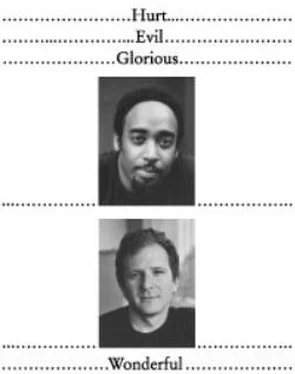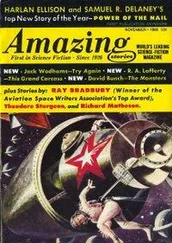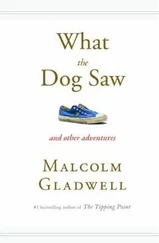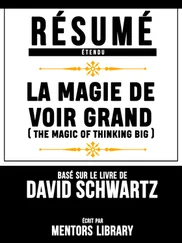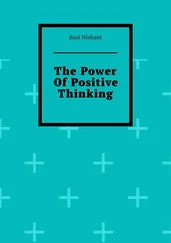Malcolm Gladwell - Blink - The Power of Thinking Without Thinking
Здесь есть возможность читать онлайн «Malcolm Gladwell - Blink - The Power of Thinking Without Thinking» весь текст электронной книги совершенно бесплатно (целиком полную версию без сокращений). В некоторых случаях можно слушать аудио, скачать через торрент в формате fb2 и присутствует краткое содержание. Жанр: Культурология, Психология, на английском языке. Описание произведения, (предисловие) а так же отзывы посетителей доступны на портале библиотеки ЛибКат.
- Название:Blink: The Power of Thinking Without Thinking
- Автор:
- Жанр:
- Год:неизвестен
- ISBN:нет данных
- Рейтинг книги:3 / 5. Голосов: 1
-
Избранное:Добавить в избранное
- Отзывы:
-
Ваша оценка:
- 60
- 1
- 2
- 3
- 4
- 5
Blink: The Power of Thinking Without Thinking: краткое содержание, описание и аннотация
Предлагаем к чтению аннотацию, описание, краткое содержание или предисловие (зависит от того, что написал сам автор книги «Blink: The Power of Thinking Without Thinking»). Если вы не нашли необходимую информацию о книге — напишите в комментариях, мы постараемся отыскать её.
Blink: The Power of Thinking Without Thinking — читать онлайн бесплатно полную книгу (весь текст) целиком
Ниже представлен текст книги, разбитый по страницам. Система сохранения места последней прочитанной страницы, позволяет с удобством читать онлайн бесплатно книгу «Blink: The Power of Thinking Without Thinking», без необходимости каждый раз заново искать на чём Вы остановились. Поставьте закладку, и сможете в любой момент перейти на страницу, на которой закончили чтение.
Интервал:
Закладка:
You may have done the same thing, whether you realized it or not, when you first picked up this book. How long did you first hold it in your hands? Two seconds? And yet in that short space of time, the design of the cover, whatever associations you may have with my name, and the first few sentences about the kouros all generated an impression—a flurry of thoughts and images and preconceptions—that has fundamentally shaped the way you have read this introduction so far. Aren’t you curious about what happened in those two seconds?
I think we are innately suspicious of this kind of rapid cognition. We live in a world that assumes that the quality of a decision is directly related to the time and effort that went into making it. When doctors are faced with a difficult diagnosis, they order more tests, and when we are uncertain about what we hear, we ask for a second opinion. And what do we tell our children? Haste makes waste. Look before you leap. Stop and think . Don’t judge a book by its cover. We believe that we are always better off gathering as much information as possible and spending as much time as possible in deliberation. We really only trust conscious decision making. But there are moments, particularly in times of stress, when haste does not make waste, when our snap judgments and first impressions can offer a much better means of making sense of the world. The first task of Blink is to convince you of a simple fact: decisions made very quickly can be every bit as good as decisions made cautiously and deliberately.
Blink is not just a celebration of the power of the glance, however. I’m also interested in those moments when our instincts betray us. Why, for instance, if the Getty’s kouros was so obviously fake—or, at least, problematic—did the museum buy it in the first place? Why didn’t the experts at the Getty also have a feeling of intuitive repulsion during the fourteen months they were studying the piece? That’s the great puzzle of what happened at the Getty, and the answer is that those feelings, for one reason or another, were thwarted. That is partly because the scientific data seemed so compelling. (The geologist Stanley Margolis was so convinced by his own analysis that he published a long account of his method in Scientific American. ) But mostly it’s because the Getty desperately wanted the statue to be real. It was a young museum, eager to build a world-class collection, and the kouros was such an extraordinary find that its experts were blinded to their instincts. The art historian George Ortiz was once asked by Ernst Langlotz, one of the world’s foremost experts on archaic sculpture, whether he wanted to purchase a bronze statuette. Ortiz went to see the piece and was taken aback; it was, to his mind, clearly a fake, full of contradictory and slipshod elements. So why was Langlotz, who knew as much as anyone in the world about Greek statues, fooled? Ortiz’s explanation is that Langlotz had bought the sculpture as a very young man, before he acquired much of his formidable expertise. “I suppose,” Ortiz said, “that Langlotz fell in love with this piece; when you are a young man, you do fall in love with your first purchase, and perhaps this was his first love. Notwithstanding his unbelievable knowledge, he was obviously unable to question his first assessment.”
That is not a fanciful explanation. It gets at something fundamental about the way we think. Our unconscious is a powerful force. But it’s fallible. It’s not the case that our internal computer always shines through, instantly decoding the “truth” of a situation. It can be thrown off, distracted, and disabled. Our instinctive reactions often have to compete with all kinds of other interests and emotions and sentiments. So, when should we trust our instincts, and when should we be wary of them? Answering that question is the second task of Blink. When our powers of rapid cognition go awry, they go awry for a very specific and consistent set of reasons, and those reasons can be identified and understood. It is possible to learn when to listen to that powerful onboard computer and when to be wary of it.
The third and most important task of this book is to convince you that our snap judgments and first impressions can be educated and controlled. I know that’s hard to believe. Harrison and Hoving and the other art experts who looked at the Getty kouros had powerful and sophisticated reactions to the statue, but didn’t they bubble up unbidden from their unconscious? Can that kind of mysterious reaction be controlled? The truth is that it can. Just as we can teach ourselves to think logically and deliberately, we can also teach ourselves to make better snap judgments. In Blink you’ll meet doctors and generals and coaches and furniture designers and musicians and actors and car salesmen and countless others, all of whom are very good at what they do and all of whom owe their success, at least in part, to the steps they have taken to shape and manage and educate their unconscious reactions. The power of knowing, in that first two seconds, is not a gift given magically to a fortunate few. It is an ability that we can all cultivate for ourselves.
There are lots of books that tackle broad themes, that analyze the world from great remove. This is not one of them. Blink is concerned with the very smallest components of our everyday lives—the content and origin of those instantaneous impressions and conclusions that spontaneously arise whenever we meet a new person or confront a complex situation or have to make a decision under conditions of stress. When it comes to the task of understanding ourselves and our world, I think we pay too much attention to those grand themes and too little to the particulars of those fleeting moments. But what would happen if we took our instincts seriously? What if we stopped scanning the horizon with our binoculars and began instead examining our own decision making and behavior through the most powerful of microscopes? I think that would change the way wars are fought, the kinds of products we see on the shelves, the kinds of movies that get made, the way police officers are trained, the way couples are counseled, the way job interviews are conducted, and on and on. And if we were to combine all of those little changes, we would end up with a different and better world. I believe—and I hope that by the end of this book you will believe it as well—that the task of making sense of ourselves and our behavior requires that we acknowledge there can be as much value in the blink of an eye as in months of rational analysis. “I always considered scientific opinion more objective than esthetic judgments,” the Getty’s curator of antiquities Marion True said when the truth about the kouros finally emerged. “Now I realize I was wrong.”
ONE. The Theory of Thin Slices: How a Little Bit of Knowledge Goes a Long Way
Some years ago, a young couple came to the University of Washington to visit the laboratory of a psychologist named John Gottman. They were in their twenties, blond and blue-eyed with stylishly tousled haircuts and funky glasses. Later, some of the people who worked in the lab would say they were the kind of couple that is easy to like—intelligent and attractive and funny in a droll, ironic kind of way—and that much is immediately obvious from the videotape Gottman made of their visit. The husband, whom I’ll call Bill, had an endearingly playful manner. His wife, Susan, had a sharp, deadpan wit.
They were led into a small room on the second floor of the nondescript two-story building that housed Gottman’s operations, and they sat down about five feet apart on two office chairs mounted on raised platforms. They both had electrodes and sensors clipped to their fingers and ears, which measured things like their heart rate, how much they were sweating, and the temperature of their skin. Under their chairs, a “jiggle-o-meter” on the platform measured how much each of them moved around. Two video cameras, one aimed at each person, recorded everything they said and did. For fifteen minutes, they were left alone with the cameras rolling, with instructions to discuss any topic from their marriage that had become a point of contention. For Bill and Sue it was their dog. They lived in a small apartment and had just gotten a very large puppy. Bill didn’t like the dog; Sue did. For fifteen minutes, they discussed what they ought to do about it.
Читать дальшеИнтервал:
Закладка:
Похожие книги на «Blink: The Power of Thinking Without Thinking»
Представляем Вашему вниманию похожие книги на «Blink: The Power of Thinking Without Thinking» списком для выбора. Мы отобрали схожую по названию и смыслу литературу в надежде предоставить читателям больше вариантов отыскать новые, интересные, ещё непрочитанные произведения.
Обсуждение, отзывы о книге «Blink: The Power of Thinking Without Thinking» и просто собственные мнения читателей. Оставьте ваши комментарии, напишите, что Вы думаете о произведении, его смысле или главных героях. Укажите что конкретно понравилось, а что нет, и почему Вы так считаете.
